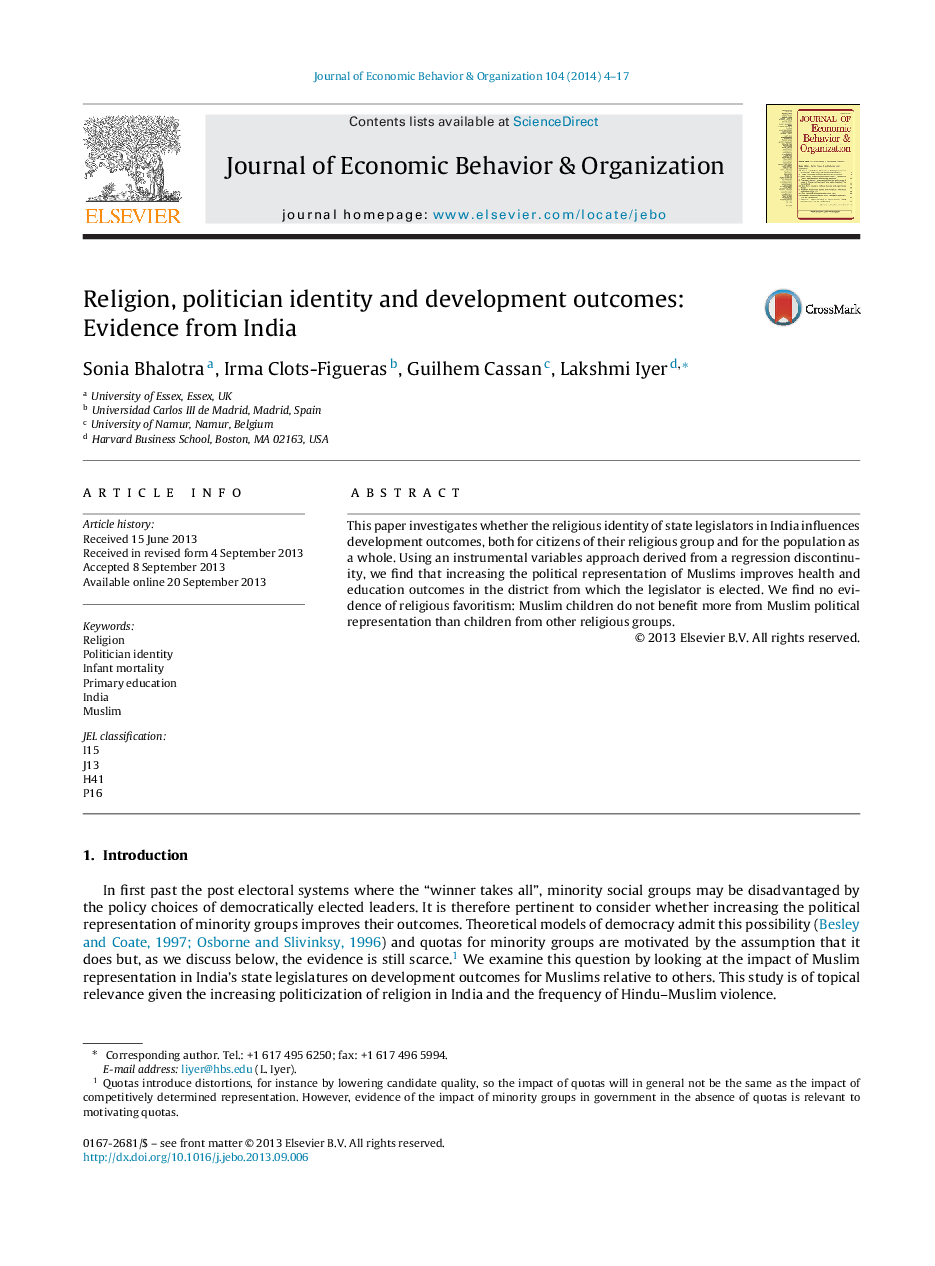| Article ID | Journal | Published Year | Pages | File Type |
|---|---|---|---|---|
| 883546 | Journal of Economic Behavior & Organization | 2014 | 14 Pages |
Abstract
This paper investigates whether the religious identity of state legislators in India influences development outcomes, both for citizens of their religious group and for the population as a whole. Using an instrumental variables approach derived from a regression discontinuity, we find that increasing the political representation of Muslims improves health and education outcomes in the district from which the legislator is elected. We find no evidence of religious favoritism: Muslim children do not benefit more from Muslim political representation than children from other religious groups.
Related Topics
Social Sciences and Humanities
Economics, Econometrics and Finance
Economics and Econometrics
Authors
Sonia Bhalotra, Irma Clots-Figueras, Guilhem Cassan, Lakshmi Iyer,
